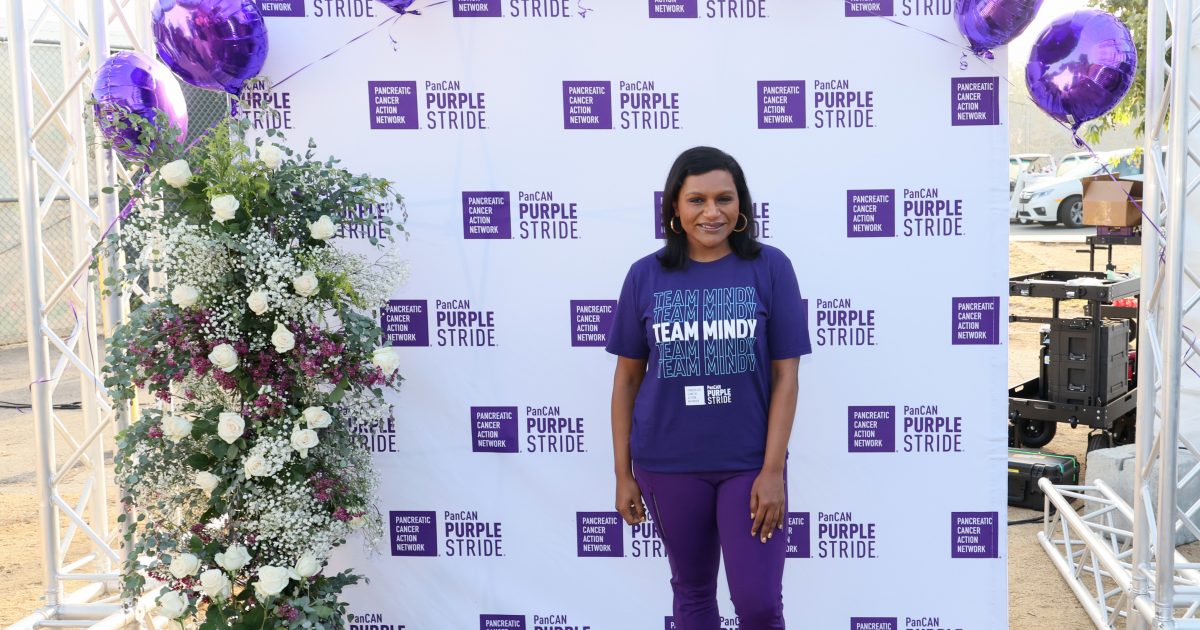An Advocate of Pancreatic Cancer to Honor Her Late Mother
- The Office star Mindy Kaling, 42, had the best of both worlds on Mother’s Day this year, spending time with her two kids by day, and performing on stage in Hollywood by night. But there was one special lady missing from all the action.
- Kaling lost her mother to pancreatic cancer 10 years ago, and works as an advocate to raise awareness about the deadly disease, which is unfortunately often caught too late.
- There is currently no standard diagnostic tool or early detection method for this cancer, says the Pancreatic Cancer Action Network (PCAN). Researchers all over the world are working to create early detection methods.
While Mother’s Day is a celebration for all the hard-working mamas out there, it can also be a painful day for people who no longer have their mothers in their life, like Kaling. Mindy’s mom, Swati Chokalingam, lost her battle with pancreatic cancer ten years ago.
Read MoreView this post on Instagram
The playful nod to a not-so-glamorous home life while taking care of young ones is perfectly relatable to the millions of others out there, but Kaling was also able to celebrate her more fashionable side by performing in Hollywood later that night, which is not something everyone is used to.
“The best way to end Mother's Day is onstage with my other baby, @neverhaveiever, with my work wife @loulielang and the wonderful cast, at the Pantages as part of @netflixisajoke,” she captioned a pic of herself all done up in a black and gold dress. “I'm reading John McEnroe's part so everyone can finally see how good I am at impressions.”
View this post on Instagram
Kaling created Never Have I Ever, and the comedy-drama will launch its third season in August.
Mindy Kaling’s Other Role as Advocate
In addition to raising two kids and writing, producing, directing, and acting, The Mindy Project star is also involved with the Pancreatic Cancer Action Network (PanCAN) as a brand ambassador.
"I'm standing here today, with my mom in spirit, to continue her fight by advocating and supporting research that advances early detection and treatments for pancreatic cancer patients and their families," Kaling said when she first decided to team up with the organization in 2020.
In a video, Kaling shared that her mother tried many different types of treatments during her cancer fight, but since it was caught in an advanced stage they weren't successful. This can be common in many pancreatic cancer diagnoses, especially because symptoms don't often present themselves until the cancer has spread.
Kaling’s mom was diagnosed with stage 4 pancreatic cancer in 2011, and passed away from the disease eight months later in 2012. Now, Kaling hopes to help others by sharing her first-hand experience with the disease.
"When I was growing up my mom was always there for me," Kaling said. "We shared everything together. So when I found out she had been diagnosed with pancreatic cancer, it was one of the toughest moments of my life. We did everything we could for her, but we just hadn't caught it in time."
The Mother-Daughter Bond is Unbreakable
Understanding Pancreatic Cancer
The American Cancer Society estimates that about 62,210 people will be diagnosed with pancreatic cancer in 2022, and sadly, roughly 49,830 people will die from it, and that is because it is seldom diagnosed early.
Dr. Anirban Maitra, of MD Anderson Cancer Center in Houston, Texas, previously told SurvivorNet that because the pancreas is inside the abdomen, "it often doesn't have symptoms that would tell you that something is wrong with your pancreas … by the time individuals walk into the clinic with symptoms like jaundice, weight loss, back pain or diabetes, it's often very late in the stage of the disease."
Challenges to Screening for Pancreatic Cancer
"The reason for that is that most individuals, about 80 percent, will actually present with what we called advanced disease (or metastatic), which means that the cancer has either spread beyond the pancreas or into other organs like the liver, and so you cannot take it out with surgeries," he added.
Risk factors for this cancer, according to the ACS, include:
- Using tobacco
- Being overweight
- Being diabetic
- Pancreatitis (inflammation of the pancreas)
- Exposure to chemicals (particularly chemicals used in the dry cleaning and metalworking industries)
There is currently no standard diagnostic tool or early detection method for this cancer, says the Pancreatic Cancer Action Network (PCAN). But researchers all over the world are working to create early detection methods, which can hopefully save the lives of many people to come.
Learn more about SurvivorNet's rigorous medical review process.


